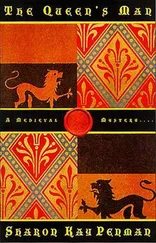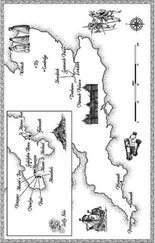Rory Clements - The Queen's man
Здесь есть возможность читать онлайн «Rory Clements - The Queen's man» весь текст электронной книги совершенно бесплатно (целиком полную версию без сокращений). В некоторых случаях можно слушать аудио, скачать через торрент в формате fb2 и присутствует краткое содержание. Жанр: Исторический детектив, на английском языке. Описание произведения, (предисловие) а так же отзывы посетителей доступны на портале библиотеки ЛибКат.
- Название:The Queen's man
- Автор:
- Жанр:
- Год:неизвестен
- ISBN:нет данных
- Рейтинг книги:4 / 5. Голосов: 1
-
Избранное:Добавить в избранное
- Отзывы:
-
Ваша оценка:
- 80
- 1
- 2
- 3
- 4
- 5
The Queen's man: краткое содержание, описание и аннотация
Предлагаем к чтению аннотацию, описание, краткое содержание или предисловие (зависит от того, что написал сам автор книги «The Queen's man»). Если вы не нашли необходимую информацию о книге — напишите в комментариях, мы постараемся отыскать её.
The Queen's man — читать онлайн бесплатно полную книгу (весь текст) целиком
Ниже представлен текст книги, разбитый по страницам. Система сохранения места последней прочитанной страницы, позволяет с удобством читать онлайн бесплатно книгу «The Queen's man», без необходимости каждый раз заново искать на чём Вы остановились. Поставьте закладку, и сможете в любой момент перейти на страницу, на которой закончили чтение.
Интервал:
Закладка:
‘Where is the castle gate from here?’
‘To the right, down by the river. Not more than a furlong.’
‘We shall see.’ In truth, Shakespeare thought, it was not a bad idea. He would like to hear about the castle from outside as well as in. He took a deep draught of ale and began to eat. He needed to be at the castle quickly, to present himself to the Earl of Shrewsbury, the long-suffering keeper of Mary, Queen of Scotland, the woman Walsingham referred to as the Scots devil and others called bosom serpent .
Sheffield Castle nestled at the confluence of the rivers Don and Sheaf, which defended its northern and eastern walls. The water was channelled around to form a moat on the other two sides.
Shakespeare’s first impression was of an old-fashioned motte-and-bailey fortress with impressive earthworks and a stone palisade. From what Walsingham had told him, it had been built in the days of the third Henry, three hundred years since. Its high stone walls then would have held the local people in thrall and would have been a deterrent to any opposing host armed with simple swords and pikes. Even a siege engine of those days, such as the trebuchet or catapult, would have had little impact. Yet those same walls would crumble before today’s mighty cannon. A battery of culverins would reduce the stones to rubble.
At the gatehouse, to the west, Shakespeare handed over the papers bearing Walsingham’s seal. Within a few minutes, he and Boltfoot were relieved of their weapons and ushered through to the earl’s great chamber, in the outer bailey. The hall was hung with tapestries and to Shakespeare’s surprise some carpets were laid out on the floor for walking on, something he had never seen before, even at court. Boltfoot stayed outside the door.
George Talbot, Earl of Shrewsbury, was sitting at the end of a long, oak table, carved with mythic beasts and polished to a shine. He was writing, a secretary standing at his side with inkhorn in his outstretched hand. The earl occasionally dipped his quill in the ink, but he did not look up. At last, he decided he had finished and read the paper through. Finally, he added his mark with a flourish and handed the paper to his man. ‘Seal it and send it,’ he ordered. Only then did Shrewsbury look up at Shakespeare, who was standing at a distance from him. The earl gestured briskly with his hand. ‘Draw near, sir, draw near.’
Shakespeare approached and bowed, all the while studying the old nobleman’s face. As he neared the great age of sixty, Shrewsbury looked tired. His skin was thin and lined like parchment, his beard long and wispy and grey, his eyes heavy-lidded and distant.
‘I am John Shakespeare, my lord, in the employ of Sir Francis Walsingham.’
‘So I see from your papers. Why are you here? Are you sent to spy on me?’
‘No, sir.’
‘Then what is it? Do you seek dirty little morsels for the shrew my wife? Are you in her pay? Has the shrew sent you?’
Shakespeare was disconcerted by the earl’s tone. Shrewsbury seemed like a lighted match, hovering over the touchpowder of an arquebus, and even without digging further he knew he would have to recommend change: the earl had borne the onerous task of keeping Mary Stuart prisoner for almost fourteen years — far too long for one man to endure. It was said at court that his health was diminished and his marriage to Bess of Hardwick long gone to perdition. Now, looking at the man in the flesh, it was clear that the gossips spoke true.
‘I have never met your wife, my lord. I am here on the orders of Mr Secretary, as you can see from my papers.’
‘Then why are you here? Get it out, man. Speak plain.’
Shrewsbury was the wealthiest noble in the land and he was angry. Most young men of modest birth would be intimidated by him, but Shakespeare looked the earl straight in his watery blue eyes. ‘I am here to seek a Frenchman named Leloup, whom we know to be in the country. It is thought possible — no, likely — that he intended coming here to Sheffield.’
‘A Frenchman?’
It seemed to Shakespeare that the ragged lines in Shrewsbury’s face were suddenly deeper, his pallid skin paler. ‘A one-armed Frenchman with a nose that has been compared to that of a wolf’s. He would be difficult to miss.’
‘Seguin.’ The earl sighed heavily. ‘One arm. .’
‘Have you seen him?’
‘I fear I have. Yes, yes, he was here. He called himself François Seguin, doctor of medicine. And like a fool I allowed him to see her.’
Shakespeare was appalled. ‘He was permitted to meet the Queen of Scots?’
‘Four days ago. The papist had been begging me for months to allow her a visit from a new physician, one she had heard of in France when she was married to the French king, one who she said would be able to save her where other men could not. She told me that her own physician, Dr Burgoyne, and her surgeon, Jarvis, lacked knowledge and potions and that she would die without Seguin’s care and ministration.’
‘Did you meet this man?’
‘I entertained him to dinner. He was good company. I do not have much in the way of company, Mr Shakespeare. As you must know, I am forbidden to leave my post as custodian and come to court. And so I take my cheer where I may. Visitors are welcome at my table. Even young factotums of Walsingham if they have wit. Anyway, continue, if you will. Who is this Seguin?’
‘His real name is Leloup. He is the Duke of Guise’s man.’
‘Guise?’ The little colour left in the earl’s face drained away.
‘When not ministering to the sick, he organises assassinations on the duke’s behalf.’
‘God’s blood, what have I done?’
‘That is what we must discover. Is Leloup still here?’
Shrewsbury shook his head. ‘He left soon after their meeting. He came to me and thanked me for allowing him access, but said that he could not stay, for he had to bring mithridate to her, or she would most certainly die. He said he would be back as soon as he could. I shook him by the hand and hurried him on his way, for I feared the worst. Mary has ailed for many months now. My duty is to keep her alive, Mr Shakespeare, whatever other men might wish.’
‘How long was Leloup with her? Was he accompanied?’
‘He arrived here alone. He did not even have a servant. The only one with him when he met Mary Stuart was her own man, who resides here in her apartments, a young Scot named Buchan Ord. My chief of guards, Mr Wren, told me they were with her an hour.’
‘I will need to speak with Mr Ord and Mr Wren.’
‘That will be easily arranged.’
Shakespeare was appalled. The earl had clearly been guilty of a shocking dereliction of duty. At the very least, he should have requested permission from the Privy Council before allowing Mary such a visitor. As a Privy Councillor himself — even one who was never able to attend meetings — he should have known as much. And Shakespeare was aware that this was not the first time the earl had taken such matters into his own hands. Perhaps the scandalous talk at court that he was becoming altogether too close to the Scots Queen had some foundation in fact. Shakespeare kept his expression carefully neutral.
‘Tell me more about your surveillance of Mary, if you would, my lord.’
‘Surveillance?’
‘Did anyone manage to overhear Leloup’s conversation with her?’
‘What are you implying, Shakespeare?’
‘Is she spied on at all times?’
‘Do you think I am a man without honour? This may be a garrison but it is also my home. Mary is my royal guest, Queen of Scotland. I will not countenance Walsingham’s damnable practices in this place. It is enough that I must hold the wretched woman captive these interminable years. .’
Читать дальшеИнтервал:
Закладка:
Похожие книги на «The Queen's man»
Представляем Вашему вниманию похожие книги на «The Queen's man» списком для выбора. Мы отобрали схожую по названию и смыслу литературу в надежде предоставить читателям больше вариантов отыскать новые, интересные, ещё непрочитанные произведения.
Обсуждение, отзывы о книге «The Queen's man» и просто собственные мнения читателей. Оставьте ваши комментарии, напишите, что Вы думаете о произведении, его смысле или главных героях. Укажите что конкретно понравилось, а что нет, и почему Вы так считаете.












